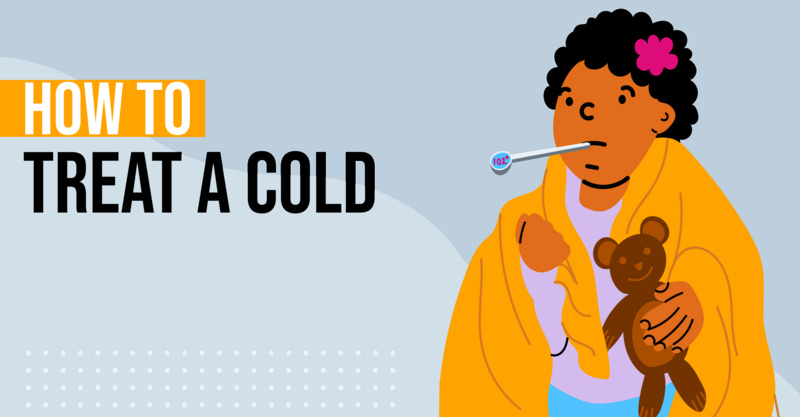Key Points
- A fever is not an illness but a symptom of an underlying condition, often indicating an infection, as it's the body's way of fighting off bacteria and viruses that can't survive at higher temperatures.
- A fever is considered significant when the body temperature exceeds 100.4 F.
- The top five causes of fever include infection, medication, food poisoning, immunizations, and fever of unknown origin (FUO).
- Other health conditions like inflammatory diseases, severe sunburn, heat illness, yellow fever, blood clots, and COVID-19 can also trigger a fever.
- Doctors may ask about the duration of your fever, accompanying symptoms, recent exposure to heat or medications, immunizations, and potential exposure to COVID-19 to diagnose the cause.
What is a Fever?
We all know the feeling when a fever creeps up – body aches and cold chills that leave you weak, uncomfortable, and confined to your bed. We also recognize fevers most obviously by the unusually high temperature on the thermometer, but why does this happen? A fever is not an illness in and of itself, but rather a symptom of an underlying illness, most often an infection. Fevers are one of the body’s natural defense mechanisms against bacteria and viruses that can’t survive in higher temperatures, and they also allow the body’s defense systems to work even better. So, if you have a fever, it’s because your body is working hard to fight off whatever illness is making you sick in the first place.
Technically, any body temperature above the normal oral measurement of 98.6 Fahrenheit or the normal rectal temperature of 99 F is considered elevated, but a person is not considered to have a significant fever until the temperature is above 100.4 F. Any temperature above normal but below 100.4 F is considered a low-grade fever, and is generally not anything to worry about.
Top 5 Causes of Fever
1. Infection
If you have a fever, it’s likely due to an infection.[1] Many fevers are caused by mild infections such as a cold or the flu. You might also have a stuffy nose, sneeze, cough, and experience body aches if you have one of these types of infections. Infections cause fevers as the body tries to kill off bacteria or viruses in your body that shouldn’t be there. Most of the time, a fever subsides as an infection does.
2. Medication
Certain drugs that your doctor gives you could cause your body temperature to run a little hotter than normal or could even cause a full-blown fever. Some of the drugs that most commonly cause fevers include blood pressure drugs (also known as antihypertensives), antibiotics, and anti-seizure drugs.[1] Your doctor should let you know if this is a possible side effect of a drug you take, but it’s always a good idea to ask so you don’t become concerned over nothing.
3. Food Poisoning
One of the signs of food poisoning is a fever. People who eat something that has a germ or bacteria that makes them sick experience fever, nausea, vomiting, diarrhea, and stomach cramps for a few hours or days.[2] Most people can get over food poisoning by resting and drinking fluids; however, if you have a fever higher than 101.5 degrees F or become dehydrated, it is important to seek medical help.
4. Immunizations
When a child gets immunized against diseases such as tetanus or diphtheria, there is a possibility they could experience a mild fever.[3] It is not usually dangerous, but if the fever goes over 105 degrees, if the child is very fussy or cries continuously, or if the child experiences any symptoms of a seizure (such as twitching or jerking of the muscles), it is necessary to get medical help immediately.[4]
5. FUO
Sometimes, a person might experience a fever seemingly without reason, also known as a fever of unknown origin or an FUO.[5] These fevers can occur for many reasons: because of an immune deficiency, because the individual has HIV, or because the individual has been in the hospital for a long time. In some cases, an FUO occurs in a healthy person who suddenly experiences a fever that lasts for several weeks. This requires more research on the part of their doctor and usually has a different underlying cause.
Possible Health Conditions Related to Fever
1. Inflammatory Disease
Certain inflammatory diseases, such as rheumatoid arthritis and Crohn’s disease, can cause fevers. Other signs of rheumatoid arthritis include weight loss, stiffness in the joints, and swollen or warm joints; other signs of Crohn’s disease are weight loss and bleeding. It is important to seek a doctor’s diagnosis if you experience any of these symptoms along with a prolonged fever.
2. Severe Sunburn
Getting a severe sunburn can cause you to experience a fever because your body is hot and still radiating heat. In the case of a sunburn, the fever usually occurs alongside nausea, rash, and chills. This combination of symptoms is often called sun poisoning. Any time you have a sunburn and experience a fever as a result, you must go to the doctor immediately. Other severe or emergency-related signs of a dangerous sunburn include signs of shock, dizziness, and sensitivity to light.[6]
3. Heat Illness
Even someone who has been out in the heat all day but hasn’t gotten a sunburn can experience a fever. Heat exhaustion can be a serious issue if a person begins running a fever as a result. However, heat stroke is a medical emergency that could cause a person’s body temperature to get as high as 106 degrees.[7] This is a medical emergency requiring immediate treatment, especially if the person’s temperature is anywhere near this high or if they have stopped sweating and their skin is dry.
4. Yellow Fever
People who travel frequently, especially to exotic places such as Africa and South America, are much more likely to get yellow fever, a disease resulting from a bite from a mosquito carrying the yellow fever virus.[8] People with yellow fever usually experience a fever, joint and muscle pain, vomiting, and a headache when the infection first occurs; after several days, the symptoms can subside. However, some people get much worse after about 24 hours and experience delirium, bleeding, and seizures if the problem is not treated.
5. Blood Clot
A person who has a blood clot in their lung could experience a fever along with other symptoms, such as sweating, an extremely fast pulse, shortness of breath, chest pain, and coughing up blood.[9] When these symptoms occur, the individual needs immediate medical treatment. Although they are usually treated with anticoagulants, severe blood clots might require surgical removal.
6. Coronavirus (COVID-19)
Fever is one of the most common symptoms of coronavirus, or COVID-19.[10] COVID-19 is a respiratory illness that shares many of the same symptoms as influenza and is thought to spread mainly from person to person.[11,12] Fever related to COVID-19 may be accompanied by chills, along with other common symptoms including fatigue, cough, sore throat, and shortness of breath. Fever may appear between 2 and 14 days after exposure to COVID-19.
Questions Your Doctor May Ask About Your Fever
- How long has your fever lasted?
- Were you sick with a cold or flu recently?
- Have you been out in the heat?
- Have you experienced any other symptoms along with a fever, such as pain, discomfort, or dizziness?
- Are you on any medications or have you received any immunizations lately?
- Is your fever accompanied by chills and other symptoms of COVID-19?
- Have you recently spent time with anyone who has been exposed to COVID-19?
- Have you recently been within close proximity to people outside your household?
Fever May Also Be Known as
- Pyrexia
- Hyperthermia
- High temperature
- Elevated temperature
Frequently asked questions
What is a fever and what does it indicate?
A fever is a symptom, not an illness, often indicating an underlying condition like an infection. It's the body's way of fighting off bacteria and viruses that can't survive at higher temperatures.When is a fever considered significant?
A fever is considered significant when the body temperature exceeds 100.4 F.What are the top five causes of fever?
The top five causes of fever are infection, medication, food poisoning, immunizations, and fever of unknown origin (FUO).Can other health conditions cause a fever?
Yes, other health conditions like inflammatory diseases, severe sunburn, heat illness, yellow fever, blood clots, and COVID-19 can also trigger a fever.What questions might a doctor ask to diagnose the cause of a fever?
A doctor may ask about the duration of your fever, any accompanying symptoms, recent exposure to heat or medications, any recent immunizations, and potential exposure to COVID-19.Is a fever always a sign of an infection?
No, while a fever often indicates an infection, it can also be caused by other factors like medication, food poisoning, immunizations, and certain health conditions.Are there other terms for fever?
Yes, other terms for fever include pyrexia, hyperthermia, high temperature, and elevated temperature.Can a fever be a symptom of COVID-19?
Yes, a fever can be a symptom of COVID-19.
Solv has strict sourcing guidelines and relies on peer-reviewed studies, academic research institutions, and medical associations. We avoid using tertiary references.









